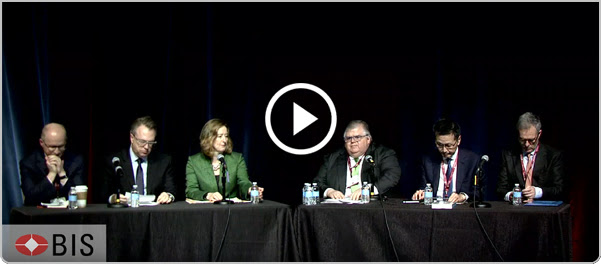One of the benefits of doing this blog is that from time to time I get reader input pointing me to a variety of information and articles that touch on the ideas of how a monetary system should work.
In this case, I want to thank a reader here for fowarding me this link to an article that explores the views of French economist Jacques Reuff. Below I have pasted in a few excerpts from the article. The reader also advises me that he is collaborating with the author of this article (Samuel Gregg) on another article that will propose some ideas on how a monetary system should be structured later on this year.
We are always happy to feature serious ideas and proposals on this topic here and then add them to our marketplace of ideas for monetary system reform page. The intent is to build an archive all on one blog page linking to a number of ideas for monetary system reform to make it easier for readers to consider them and compare them. I could not do this without all the help I get from reader input and experts who help me out. I always want express my thanks for that here.
-------------------------------------------------------------------------------------------------
Jacques Reuff's Monetary Order and US
"We live in strange monetary times. In Europe and Japan, central banks have implemented negative interest-rates to stimulate sluggish economies, despite overwhelming evidence that such policies aren’t working. The European Central Bank has even restarted its four-year old quantitative-easing program to try and overcome anemic growth throughout the Eurozone. Across the Atlantic, the Federal Reserve is trying to calibrate interest-rates to help America avoid a recession, even though there’s no consensus among forecasters of an imminent recession. Calls for the Fed to head towards negative-interest rates grow louder.
These trends suggest an international monetary system in which some of the world’s leading central banks seem driven by political reaction to immediate events and unfocussed upon what a primary goal of any sound monetary system: the provision of a stable unit of account that facilitates the free economic choices of consumers, households, and businesses over the long-term. From this standpoint, a type of monetary disorder is growing throughout the global economy.
Addressing the problem in a comprehensive way surely requires consideration of what truly constitutes order in a monetary system. Few people thought more about this question than the French economist and civil servant Jacques Rueff (1896-1978).
Searching for Order
"Perhaps the twentieth century’s foremost French economist, Jacques Rueff is primarily remembered for designing the economic reforms (Le plan Pinay-Rueff) imposed by Charles de Gaulle’s incoming government in December 1958 upon a France mired in economic crisis. These reforms—trade liberalization, spending-cuts, major tax and welfare changes, the termination of subsidies to many industries, and the franc’s devaluation—are widely acknowledged as having saved France from a perfect storm of currency instability, high inflation, uncompetitive industries, feeble capital markets, and low productivity. During the last fifteen years of his life Rueff moved from the French to the world stage, becoming a leading voice for restoring the classic gold standard as the Bretton-Woods system gradually collapsed."
. . . .
Real Rights and False Rights
"But what type of framework should guide the state’s bolstering of monetary stability? This brings us to one of the most innovative aspects of Rueff’s thought about monetary order: his distinction between true or real rights (vrais droits) and false rights (faux droits).
By “real rights,” Rueff had in mind rights such as rights to property. These establish a minimum of economic order by clarifying who owns what, thus enabling people’s natural propensity and liberty to possess, use, and exchange things. Such rights nevertheless need to be given form, structure, and content by government policy and legal decisions. The establishment of contract laws, for instance, allows individuals to coordinate their use of their property in mutually beneficial ways.
The legal recognition of these rights is effective because it accords with economic truths about humanity. Such rights are thus “real.” Conversely, law and policies which contradict certain economic facts—supply and demand, the workings of incentives, humans’ tendency to pursue their self-interest, etc.—end up, Rueff says, creating “false rights.”
A government may declare, for instance, that people have a right to healthcare. But if markets in healthcare are not allowed to work, such a right merely exists on paper: hence, its “falseness.” Moreover, the fact that the state has affirmed this to be a right but proved unable to realize it, encourages disrespect for the law as well as increased demands by citizens that the government actualize what it cannot. In democratic societies, Rueff believed, it was hard for politicians to resist such pressures. This produces policies which magnify the proliferation of false rights through the economy."
. . . .
Conclusion
"The key to monetary order, Rueff teaches us, is to create institutions which help market relationships to function, rather than subverting them. Establishing and protecting such rules requires the inner conviction needed to resist temptations to short-termism, and a fortitude that seems beyond most legislators and many central bankers today. That, however, is all the more reason for us to listen to Jacques Rueff—someone notoriously unafraid to speak economic truth to politicians of all persuasions—and heed his insights in our own age of creeping monetary disorder."
-------------------------------------------------------------------------------------------------------------------------
Added note: We will keep an eye out for the new article mentioned by the reader expected to come out later this year and feature it here if and when it becomes available online.





